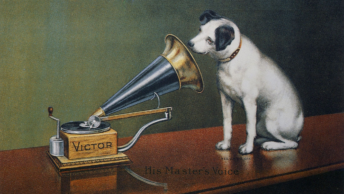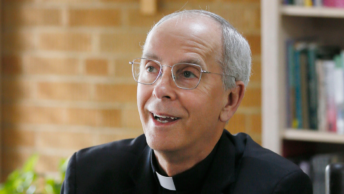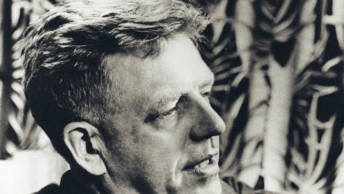
This weekend we celebrate the Labor Day holiday. This weekend signifies the end of summer (even though there are three weeks left); the beginning of the school year (even though some have been going to school since mid-August); and the general feeling that we have to get back into “work mode” (even though some people have been diligent throughout the summer months).
Theologically, this secular feast is an opportunity for us to reflect upon the nature of work and what it means in the year 2012. Unfortunately, we tend to view labor as a necessary evil brought about because of the disobedience of Adam and Eve. However, we might want to change our perspective and see our labor as an extension of our creativity. All human beings have the capacity to be creative. Some are good working with their hands. Others make music or art. Some people are creative in the kitchen and make delicious things to eat. Other people are inventors and scientists and explorers—each contributing to our world in a unique way.
Too often we link our self-worth with our paycheck or how many hours per week we spend doing a particular task. We view ourselves by what we do rather than by who we are. In the United States, when we are introduced to someone for the first time, invariably the topic turns to what we do for a living. And in some cases, we are judged according to what we do in life. And sometimes we judge ourselves by what our job title is: “I’m just a waiter, while my sister is a lawyer.” The problem with connecting our self-worth to our tasks is that as humans we are so much more than what we do. Who we are is infinitely more important than what we do.
I attended my cousin’s funeral this past week and the priest invited the congregation to share their memories of Ken. After people had had their say, he noted that not one person talked about what material thing Ken had given them and not one person talked about what Ken’s job was. Instead, they all talked about who Ken was: “a gentle giant,” “great with kids,” “friendly,” and “outgoing.” In other words, people reflected on Ken’s relationship with them and with others.
In our daily labor, it’s not so much what we do that matters, but how we do it. If I’m a waiter, I should be the best waiter, the most efficient waiter, the most friendly waiter I can be so that the dining patrons that I serve really enjoy their dining experience. If I am a nurse, I need to ensure that my patients and their families get the best nursing care I can give. When you think about a favorite server or nurse, you probably don’t remember how they did their job so much as you remember how they interacted with you—their personality, their sense of humor, and their overall demeanor.
The readings this weekend remind us to observe the law of the Lord and to put into practice all that we have been taught. In other words, in our work as well as our studies as well as our presence on a team or in a band, in any event where we interact with others, our conduct should reflect our relationship with God. As the reading from James tells us, we need to get rid of our impurities and bad habits in order to be effective role models. Finally, our prayer and worship really needs to be actualized by our conduct. We cannot preach the word if we do not live the word.
May our Labor Day truly be a celebration of how all that we do—from our work to our play—should be a reflection of our relationship with God. We thank God for the ability to work, to be creative, to be role models, and to really be representatives of the Word that we have heard and now put into practice.









Thanks for this great insight, Monsignor!!! Far too often, we fail to appreciate the truly important purpose of our life: to be a gift to others.